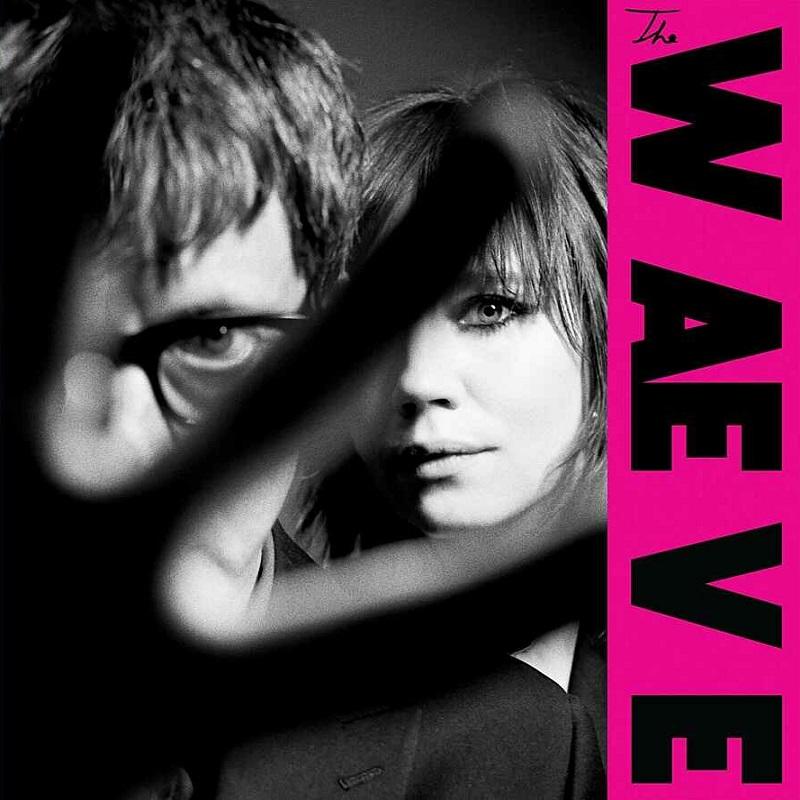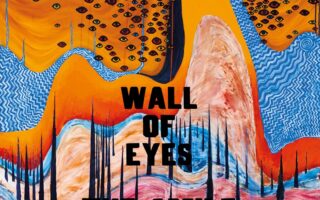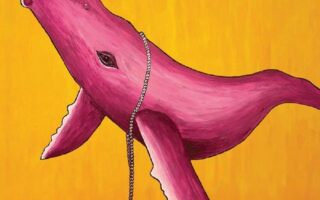
The Waeve prove to be a potent combination on their debut album.
After mastering solo life, which arguably culminated in two fine albums in the mid-2000s (2004’s Happiness In Magazines and Love Travels At Illegal Speeds in 2006), erstwhile Blur guitarist Graham Coxon has since turned his hand to alternative projects.
Now, after providing the soundtrack to coming-of-age dramas (The End Of The F**king World) and, wonderfully, a graphic novel (Superstate), follows a formal collaborative album.
At least in principle that’s what The Waeve is, yet the simplification hugely understates the concept. Uniting with Rose Elinor Dougall (formerly of The Pipettes and a one-time foil to Mark Ronson), whose presence seems to have galvanized Coxon, the duo have produced a piece of work hugely ambitious in scale and expansive in scope.
Yet on first listen it’s quite overwhelming. Where last year’s standalone single Something Pretty was easy to digest, the ten tracks on this self-titled album veer from one sound to another with little warning.
Indeed, it’s not doing it a disservice to describe the album as a collection of musical suites from the first moment. Can I Call You gradually lurches into life with a steady, filmic piano ratcheting up the anticipation alongside Dougall’s dusky vocals.
Then all hell breaks loose with strangled guitar, bonkers brass and a motorik beat, capped by a sprawling guitar solo as Coxon frantically joins his partner on vocals, dichotomising well.
The trumpet gets choked on the Can-like Kill Me Again – described by The WAEVE as, ‘a celebration of sexual agency and the power generated by the physical merging of entities…and how it will overcome evil’. Or something.
Regardless, the malevolence is made clear through the disconcerting brass, whose presence runs throughout the album with Coxon utilising his pre-Blur saxophone lessons well.
Not that the guitar is ignored; on the hesitant Over And Over he lives his fantasies of being Richards, Gilmour and Hendrix in the space of one song, when he’s not singing beautifully in tandem with Dougall.
The melody flows and swirls while the snarl shuffles, Tony Allen-like, for a beguiling track that – like several others on The WAEVE – goes on a smidgen too long but is a rewarding listen nonetheless.
It’s followed by Sleepwalking, which drives along with electronic drums before the keys morph into a groove as Dougall delivers her best vocal on the album.
At parts gnarly and industrial, at others swelling big band, the aptly-named Drowning near-suffocates the listener in layers, while Someone Up There shrewdly allows space for things to breathe before a face-melting riff.
Meanwhile, All Along broods and simmers ominously, a call-back to Dougall’s folky roots complete with cittern which would sit comfortably in a spaghetti western, and Undine continues the cinematic approach: across its near-8 minutes it channels the grandiosity of certain 1960’s Bond themes to then gradually lift-off into hypnotic timbres.
Regular Arctic Monkeys collaborator James Ford produced the album, and Alone And Free has echoes of his recent sumptuous work on The Car.
The strings glide in and out of focus in a song about the precarious nature of relationships (‘I’d rather be alone and free than see you turn and go from me’) before proceedings are brought to a close on the crisp You’re All I Want To Know, which throws everything into the melting pot for one last effort. It’s slightly saccharine and very obviously AN ALBUM CLOSER, but on a collection with such dextrous musicality it can be forgiven.
A couple in real life, Dougall and Coxon work harmoniously in music, playing together like they have done for years. They compliment each other well: the latter is an expressionist who uses distortion and speed, while the former adds gravitas and emotion.
While not necessarily greater than the sum of its parts, The Waeve proves the pair to be a fearsome combination.




